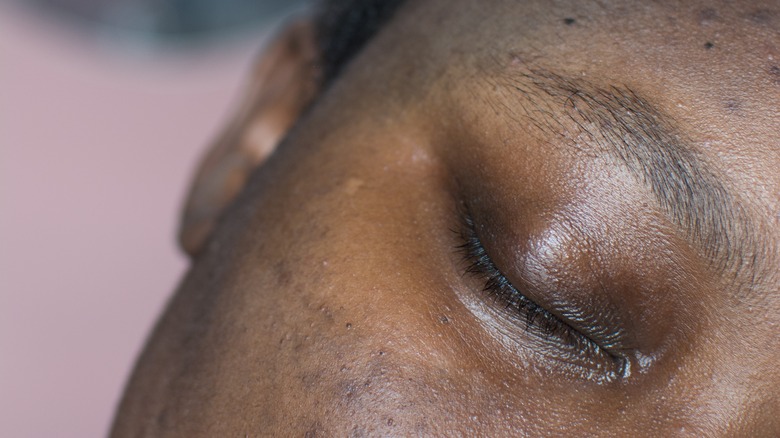Beauty Treatments That May Not Be Safe For Darker Skin Tones
A day at the spa has become a staple outing for many Americans, especially American women. Manicures, pedicures, massages, facials, and a variety of hair removal options are only a few of the options available at most spas today.
These trips may seem like the indulgence of pure vanity to some. But the beauty treatments available in spas can offer benefits that go beyond the physical. A 2008 study found that breast beauty treatments improved the mental health and body image of post-surgery breast cancer patients compared to those that did not receive beauty treatments. The impact was so strong that the researchers suggested the treatments may improve patients' social connections and support.
But not all beauty treatments have the same effect on the body. And, more importantly, not all skin types react to beauty treatments the same way. There may be a difference in how a person's skin color interacts with certain treatments.
Certain procedures affect melanin production
There is an unfortunate lack of research into the interactions between melanin and beauty treatments. There is, however, a certain amount of industry knowledge around the topic — enough that even Groupon wrote a piece on it. In order to get professional insight, they interviewed Dr. Vikram Khanna of Dermatology Specialists of Illinois who is also a clinical instructor at Northwestern University Feinberg School of Medicine.
Dr. Khanna strongly advised that those with darker pigmentations avoid four specific treatments. His list touches on moderate to intense chemical peels, certain lasers used in hair removal, fractional ablative laser treatments, and intense pulsed light (IPL) facials.
In his interview with Groupon, Dr. Khanna states that all of these procedures can lead to hyperpigmentation during their healing phases. Mayo Clinic states that chemical peels carry a general risk of changing the pigmentation of the recipient's skin. But Dr. Khanna implies that the effect could be more pronounced on people of color.
IPL photofacials and certain hair removal lasers also target dark pigmentation, which can lead to burns, according to Dr. Khanna. As these burns heal, the resulting scarring can also cause hyperpigmentation.
The National Cancer Institute states that hyperpigmentation is generally harmless. But as a 2014 review points out, it can also cause issues with the diagnosis of other skin anomalies. Before you try a new skincare treatment, talk to your dermatologist to see if it's safe for you.


